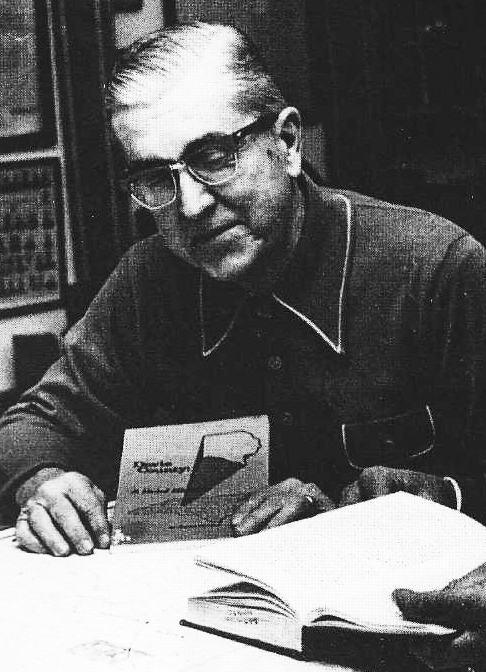The Literary Corner: Renegade Writer’s Guild
Published 1:55 pm Tuesday, October 29, 2024

- James Wall.
|
Getting your Trinity Audio player ready...
|
Through America’s Gate
Part II
By E. Bishop
Ellis Island, the enormity of the Main Building/Registry Room and the purpose behind it all is astounding. The Registry Room is where millions of immigrants, at times 5,000 a day, had their future determined; it serves as a vivid reminder of and monument to the immigrants who have come to this country from all corners of the world.
For over two decades (1900-1924), nearly every day, the Registry Room was filled with new arrivals waiting to be inspected and registered by Immigration Service officers. This is the place complex demands of the immigration laws and an American bureaucracy sealed the new comer’s fate to stay or be sent back to their native country. Becoming a citizen was a very lengthy process, waiting in lines for hours to go through various stages. For the unfortunate 2% (approximately 1,000/month) that were excluded, this place was a bitter “Isle of Tears” but most considered it an “Island of Hope” where they were able to reunite with their American relatives and friends.
An excerpt from one of the displays follows, written by Katherine Beychok, a Russian Jewish Immigrant in 1910, interviewed in 1985.
“They put us into lines, all kinds of lines. If you had visibly something wrong with you, like if they saw your eyes red, or something, they’d put one color chalk on you. If it was something else, if you were with a cane or something, it’s another chalk…..If nothing visible there, they put you in lines, regular lines…..And the doctors and everybody that was supposed to interrogate us were dressed in uniforms….[that] had a terrible effect on me….we were scared of uniforms. It took us back to the Russian uniforms that we were running away from.”
Imagine traveling such a great distance with only the belongings you can carry, (maybe in a trunk), checking your baggage in a room with thousands of others. Keeping track of immigrants’ belongings became a major logistical challenge; some just chose to keep what they could with them through the entire inspection process. Interpreters were available to help with the language barrier; that too would be a monumental task. The US Public Health Service doctors sometimes had only six seconds to scan each immigrant during the line inspection, a rapid, efficient process meant only to detect those who should be held for a more thorough medical evaluation. Any whose ailments were incurable/disabling were sent back to their ports of origin. By 1917, immigration laws prohibited the admission of anyone diagnosed with a mental impairment.
A legal inspection was required as was standard intelligence tests, such as a steamship puzzle that Dr. Howard A. Knox developed that took into account the immigrants’ backgrounds and education levels. Another type test was “Can You Draw a Diamond?” which helped determine if they had ever gone to school. Puzzle and mimicry tests were used often; these did not have to be explained by an interpreter; the immigrant did not have to know how to read or write to solve them.
Those that did not know English were easy prey for unscrupulous labor brokers; immigrants were often exploited, forced to work under dangerous conditions for meager wages. Aid societies tried to protect these new arrivals often escorting them to where they could apply for decent paying jobs. The majority of these immigrants scattered across the country by railroad looking for work wanting to leave behind the severe economic hardships, lack of opportunity, and religious/political persecution of their native countries. They wanted to build a better future for themselves and their families.
The same holds true today. America should still be a land of opportunity. This long standing contentious debate of immigration will not be easily resolved; hopefully, those in power will one day come to a reasonable solution.
The Mess is Real
By Stephanie Williams Dean
My sister, Suzanne, was visiting from Alabama, and the conversation went like this.
“Why are you taking a picture of my bookcase?” I inquired.
“I’m sending a photo of your messy bookcases to Pat,” she answered.
My sister’s friend, Pat, is an interior designer. She’s talented in many areas and has good taste. I imagine her home to be in perfect order and well-designed.
“I like the way your books are all messed up.”
I glanced at all the used and worn books on my shelves. Only a few were lined up neatly. Many books were stacked, but most were just pushed in – one on top of others. Heck, they were all messed up.
When I bought my home, built-in bookcases were installed in anticipation of their arrival. Books are fascinating and come alive with thousands of memories, stories, and histories – all demanding my attention. They have a life of their own – each created with character, personality, and independence. Like me, they don’t like to be controlled. They’re not little soldiers who stand perfectly erect – my books are undisciplined, unruly, and often rebellious.
I have a personal love relationship with my books. They love to be picked up, held and cradled warmly next to my chest – where their words lovingly touch my heart. They feed my soul. Often, they challenge me with their words and demand more interaction as I sometimes must read aloud to comprehend what they are saying.
Often, I have to interact with them to meet my own needs. The soft glow of wood burning in my fireplace while I’m wrapped in a blanket, snuggling in an old chair while cuddling with a book – soothes, comforts, and pacifies me.
Lovingly collected, my books are shelved according to my life’s interests: spiritual, cooking, travel, literature, writing, and art. They are my reading material on a rainy day, my reference guides for road trips, my sources for writing stories, or a menu choice for a delicious dinner with my family. My home, formally undecorated, supports my lifestyle and the pastimes I enjoy. I work toward that result, continuously revamping and refining. And it’s a blessing to be comfortable in one’s own home and accepting of one’s imperfections.
Permit yourself to enjoy the process of daily living. Be satisfied with baby steps and small achievements. And know that no matter how much control one tries to exert over life – life is real, and it’s going to be messed up – like my bookcases.
There’s a cliche that refers to someone as “a hot mess.” I’ll happily claim the messy bit. My messy bookcases, the messy lines of my oil paintings, a messy, cheesy casserole running over the dish, my messy, over-grown pasture, or my messy hair when I awaken – the mess is real.
But it’s beautiful – and I’ll take real, any day.
James Wall
By Linda H. Barnette
Mr. James Wall was our neighbor when I was growing up on Church Street. He was also my history teacher at Davie County High School. Although I already loved history, his knowledge and enthusiasm for his subject were obvious. When I went to Catawba, history was my minor.
For many years my home was not here in Mocksville. By the time I returned, Mr. Wall was the county historian and had written a history of First Presbyterian Church and a history of Davie County. One year for Christmas my parents gifted me with a signed copy of his history of the county, which remains one of my treasures. I often pick it up when I need information for my own research.
After I retired in 2004, I spent a lot of time at our library and often saw Mr. Wall in there working on projects. In those days Miss Flossie had just died, and others like Doris Frye and Nancy Murphy were working in the history room, carrying on the work that Miss Flossie had started. They all left a fantastic history room for people to use. It’s also a great place to work on your own family genealogy as well. In addition to books and family files, you can use Ancestry for free.
I could go on and on about the awards and honors that Mr. Wall received through the years, but I believe that he would think that teaching and writing were the two things he would like to be remembered for.
Henry Adams once said, “A teacher affects eternity. He never knows where his influence stops.”
That is true of Mr. James Wall.





